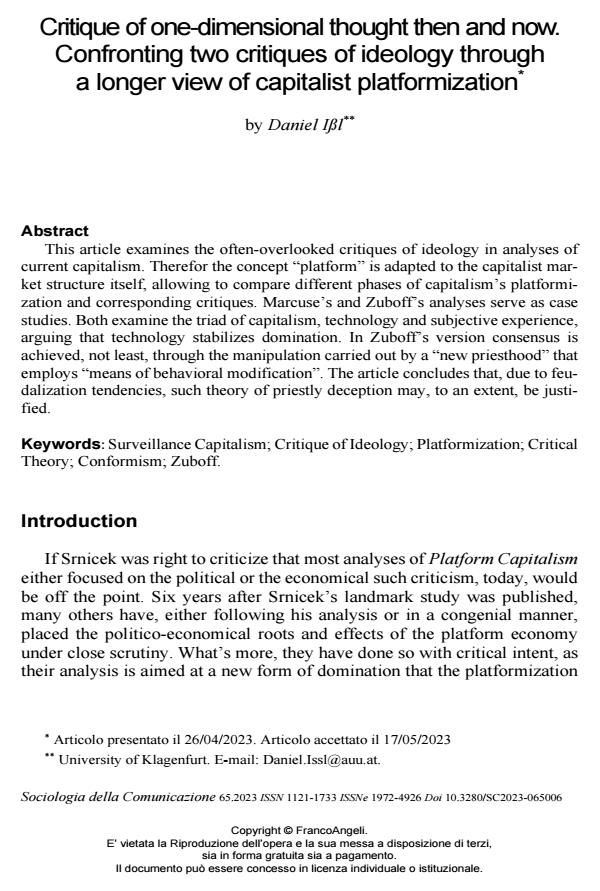Critique of one-dimensional thought then and now. Confronting two critiques of ideology through a longer view of capitalist platformization
Journal title SOCIOLOGIA DELLA COMUNICAZIONE
Author/s Daniel Ißl
Publishing Year 2023 Issue 2023/65
Language English Pages 19 P. 90-108 File size 282 KB
DOI 10.3280/SC2023-065006
DOI is like a bar code for intellectual property: to have more infomation
click here
Below, you can see the article first page
If you want to buy this article in PDF format, you can do it, following the instructions to buy download credits

FrancoAngeli is member of Publishers International Linking Association, Inc (PILA), a not-for-profit association which run the CrossRef service enabling links to and from online scholarly content.
This article examines the often-overlooked critiques of ideology in analyses of current capitalism. Therefor the concept “platform” is adapted to the capitalist market structure itself, allowing to compare different phases of capitalism’s plat-formization and corresponding critiques. Marcuse’s and Zuboff’s analyses serve as case studies. Both examine the triad of capitalism, technology and subjective experience, arguing that technology stabilizes domination. In Zuboff’s version consensus is achieved, not least, through the manipulation carried out by a “new priesthood” that employs “means of behavioral modification”. The article con-cludes that, due to feudalization tendencies, such theory of priestly deception may, to an extent, be justified.
Keywords: Surveillance Capitalism; Critique of Ideology; Platformization; Critical Theory; Conformism; Zuboff.
Daniel Ißl, Critique of one-dimensional thought then and now. Confronting two critiques of ideology through a longer view of capitalist platformization in "SOCIOLOGIA DELLA COMUNICAZIONE " 65/2023, pp 90-108, DOI: 10.3280/SC2023-065006